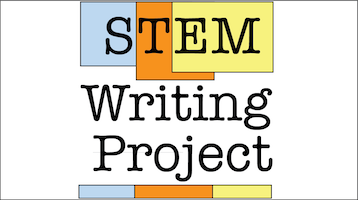STEM Writing Project
GTA Training
 GTA Training Resouces and Activities
GTA Training Resouces and Activities
Check back regularly for new training materials. Entries include source and date added. Many of these activities serve both training and diagnostic goals. The diagnostic functions are described further here.
Instructor Guides
(Source: STEM Writing Project. Added 5/17/22)
GTAs need clearly documented instructional guidelines and policies as much as undergraduates need our Writing Resource Guide. Instructor resources that we provide to all GTAs include:
| Resources | Links |
| Writing Resource Guide | Online e-book |
| Bins Scoring Guide for New GTAs (w/guide to reflective coaching) | DOCX file |
| SWP Quick-Guide to Hypothes.is for Teachers | DOCX file |
| Hypothes.is' Instructor Resource Guide | Link to web site |
Micro-Teaching Workshop
(Source: STEM Writing Project. Added 5/17/22)
During New GTA Orientation each fall, incoming GTAs participate in two days of mandatory training by our campus Teaching Center. The third day each new GTA gives a 10-minute micro-teaching presentation on any STEM topic of their choice. Workshop leaders and other GTAs serve as their student audience. After presenting, observers share thoughts and suggestions.
This activity is meant to give new GTAs the opportunity to try out new skills they have learned. In practice, many GTAs do poorly this first time, but have their first classroom "failure" with understanding colleagues who can provide concrete suggestions for improvement before the GTA goes in front of undergraduates.
For a more advanced version of this activity GTAs demonstrate how they would explain ONE specific component of the writing process to undergraduates. In a mixed group of both novice and experienced GTAs, assign the basic mechanical elements (how to arrange the introduction, how to organize text and images) to novice GTAs. Give experienced GTAs more challenging elements that local students are likely to struggle with (what needs citations, how to connect the results and discussion, etc.)
| Resources | Links |
| Micro-Teaching Workshop Guidelines | DOCX file |
Grading and Marking Archived Reports
(Source: STEM Writing Project. Added 5/17/22)
Before grading their first time, GTAs are given a set of 4-6 training reports selected from our data archive and asked to grade them using our bins-based scoring. After grading the selected reports individually, GTAs meet as a group with the lab coordinator and discuss their scores and comments. Typically we invite 1-2 of the most experienced GTAs to join this conversation so novice GTAs can compare their scores and comments with those of experienced graders.
To support this training activity we assembled an archive of 20 reports with a score distribution matching that of initial submission reports in our full research report archive. We selected reports that illustrate a range of writing quality, and have specific examples of basic criteria errors, or technical, and writing quality flaws.
Each report has been independently scored and commented on by 6 GTAs with different levels of experience using our bins scoring protocol. We selected reports that illustrate the different types of feedback that students receive as GTAs gain experience with reflective feedback.
Inter-rater agreement for overall scores (Krippendorff's alpha) is a = 0.67 for this dataset PRIOR to to discussing any points of disagreement.
| Resources | Links |
| Training dataset summary (report IDs, GTA scores, GTA experience level) | DOCX file |
| Un-marked clean copies of 20 archived reports | ZIP archive |
| Individually scored and annotated copies of 20 archived reports | ZIP archive |
Round-Robin Grading
(Source: STEM Writing Project. Added 5/17/22)
Each GTA selects 4 graded reports from their first set of the semester and passes the 4 reports to another TA who also scores them. Scores and discrepancies are discussed in the next lab prep meeting. Experienced GTAs help train the incoming novice GTAs each fall semester. As they explain our grading strategy to their peers, most will self-correct points where their grading habits have drifted from our expectations.
| Resources | Links |
| Debriefing Guide for Round-Robin Grading | DOCX file |
Post-Grading Checks
We also use two post-grading checks of GTA grading that are described under the Assessment tab:
- Correlation analysis comparing students' lecture and lab grades at the end of each semester.
- Spot checks of the types of comments GTAs make on reports at least once each year.
Where to Learn More
- The Biology Teaching Assistant Project (BioTAP Network) works at the interface of research and practice to inform the teaching professional development (TPD) of biology graduate and undergraduate instructors.
-
The Center for the Integration of Research, Teaching and Learning (CIRTL) is a national consortium of research universities that develop, test, and share instructor training materials that emphasize evidence-based teaching practices for diverse learners. Their primary focus is graduate TA training.
Comments
There are no comments on this entry.
